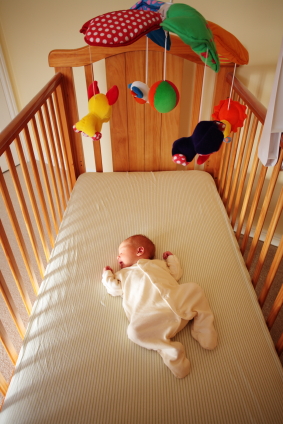Sleep is one of the greatest areas of concern for new families and is an important part of a baby’s life. Each age group comes with its own common challenges.
First 2 weeks:
New parents are often concerned about how much their new baby sleeps when he comes home from the hospital. Some sleep 19, 20, or even 22 hours a day and only wake up to feed. This is common and okay. Parth was doing exactly the same thing. As long as the feedings are going well and your baby is not too fussy, you are in good shape.
At 2 weeks to 2 months
Babies 2 weeks to 2 months old are just learning how to soothe themselves, need to eat frequently, and will surprise you with how often they poop. Feed your baby when he’s hungry, change him when needed, and let him sleep whenever he’d like in his bassinet or crib, with no blankets or stuffed animals around to risk suffocation.
Tips:
1) Established nighttime routine
2) Learn how to soothe your baby with swaddling.
At 2 to 6 Months
Babies 2 to 6 months are learning to self-soothe, so you’ve got a range of options when it comes to sleep. Some continue with their unstructured sleep, but many starts thinking about sleep-training methods. For example cry-it-out.
• Cry-it-out method
This method demonstrated the effectiveness of letting a baby fuss on her own for slowly increasing periods (ex, 1 minute for a few nights, 2 minutes for a few nights) in hopes that he learns to soothe himself in his crib. Click here to read our sleep training experience.
At 6 to 12 Months
If you haven’t thought about sleep training yet, and are hoping to do so, 6 to 12 months is the ideal time. As your baby’s need change, you’ll see a lot more curiosity and will likely see a more nighttime awakening, and you want nights to be a well-settled event at this point. Don’t be surprised if new changes in development, such as in feeding pattern, mobility, and teething, all come with short periods. Stick to your plan. Comfort briefly while your baby is in his crib, and emphasize routine for your sake and for your baby’s.
Tips:
1) Establish a bedtime routine.
Each night, to establish a bedtime routine, give your child a bath, read his favorite book, and sing the same bedtime song. Be sure to keep the activities the same way at the same time every night. These cues will help trigger a reminder that it really is bedtime.
2) Avoid playtime right before bedtime.
Avoid too much roughhousing and physical playtime right before bedtime, which may get your child worked up. The bedtime routine should be as minimally stimulating as possible. Also, avoid electronics; studies show screen time is actually stimulating and makes going to sleep harder.
You may not agree with my methods or ways of thinking and that’s perfectly fine. Every parent is different and every child is different. The most important thing you can do is listen to your mama instincts and do exactly what they tell you to do. Nonetheless, I hope you’ve found something on my blog that you find helpful. Maybe you even have something to add? Drop me a line in the comments below.


No comments:
Post a Comment